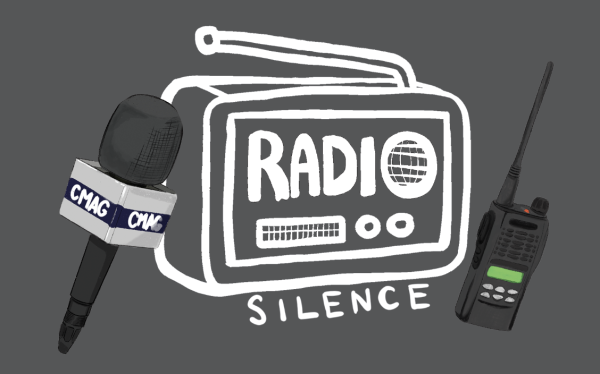The Importance of Mental Health
Here is a version of the Ted Talk I gave at Ted X Palo Alto High School on the stigma of mental illness and my personal experiences with that stigma.
Where are you going?” The words I feared most. The question I feared would be asked. Frozen. For a moment I felt frozen, like a movie stuck on pause. Do I tell the truth? Do I make up an excuse? Do I lie to a friend? Still frozen. Still unsure of how to respond to a simple question. It is unavoidable. The question has been asked. Where am I going? What do I say? Oh, how I wish I could just shout out the truth freely. “The therapist! I am going to my therapist!” But no, that was not what I said. I did not tell the truth. I did not reveal my secret. My secret that is too shameful to tell. Instead, I shaded the truth. “I have to go to the doctor.” Guilt rushed over me like the ocean over sand as it breaks onto shore. A wave of guilt. A surge of shame. Unable to speak the truth. Unable to tell a friend that I was going to the therapist, for I feared judgement. I feared the humiliation that will come from telling the truth. I feared the judging eyes of everyone I passed, glaring at me in disgust. Scowling at me, as if I had done something wrong. But why? Why did I feel as though I am committing a crime when admitting that I go to a therapist? Why did I feel as though I would be imprisoned if I let my secret slip? If I imagine myself inside a jail cell, I am waiting to be released by the guards. But nobody is there to open the cell doors. Nobody wants to release me. I am stuck inside the cell. My shaking hands are gripping the cold, metallic, terrorizing bars. “Let me out! Set me free!” But nobody is there to set me free. Only people staring into the cell, all eyes focused on me. Glaring. Scowling. Simply because I have a mental illness. I go to a therapist. I go to a psychiatrist to treat my illness. Are cancer patients ashamed of going to the doctor to help them cure their sickness? Of course not. Then why should I be ashamed to say that I have a mental illness and that I go to a psychiatrist? What is the difference? In my heart, I know there is none. In my head, I know there is none. Yet I feel as though I’d be speaking a foreign language if I revealed my secret, one that should have never been a secret in the first place. A simple question. A couple of words. They spark the stigma. The stigma around mental illness. “Mentally ill.” The words in black writing, indelibly written across my forehead. I am labeled. The stigma labels everyone with a mental illness, as if we are inked with permanent tattoos identifying our shame. OCD. I have OCD.
OCD. Obsessive Compulsive Disorder. You’d be amazed by how often people use OCD as a punchline. I’m sure you have all heard someone say “I’m being so OCD right now,” maybe as they organized the computers in the computer cart or as they straightened papers in their binder. Everyone thinks that it’s so funny and that it’s a joke. But as someone who actually has OCD, I can tell you that OCD is not funny.
When my classmates erase a word on their paper, then rewrite it and joke “I’m so OCD,” I think to myself, “that’s what I have to deal with every single day.” Only, instead of erasing once and rewriting once, I erase and rewrite four to five times, or until the letters look “perfect.” Think about how long it takes you to finish your math homework. Now multiply that by four or five. And how about listening to music while you do your homework? When one of you hears a catchy song it may get stuck in your head for a couple of minutes. But when I hear that same catchy song, it may get stuck in my head for a couple of days.
I am sharing this with all of you not because I want you to feel sorry for me, but because I hope next time you are about to say “that’s so OCD,” you’ll think twice. As someone who has experienced this, I can tell you that it makes you feel bad about yourself. I hear these things every single day, and not just about OCD. I hear jokes made about depression, anorexia, bipolar disorder — and I am almost positive that our classmates with those mental illnesses are just as hurt by these comments as I am by the jokes made about OCD.
I am asking you to be mindful of what you are about to say because all of these comments about “being so OCD,” and about other mental illnesses, can hurt. They can makes those of us with a mental illness feel ashamed, humiliated and alienated. It makes us feel the need to lie, the need to hide where we are going and the challenges we are facing.
Would you make jokes about a cancer patient losing her hair? Or about a classmate’s insulin pump he uses to manage his diabetes? I doubt it. Yet, despite the fact that a mental illness is just as real as a physical illness and can be just as debilitating, people continue to make light of it.
Our community is starting to take steps toward destigmatizing mental illness, but there is still much work to be done. If I am afraid to tell a friend of mine I am leaving school early to go see my therapist, then the stigma still exists. We need to create change. We need to start the conversation about mental illness because those of us with mental illnesses deserve to feel accepted. I shouldn’t be ashamed of getting help, nor should anyone else. Let’s make our community a safe place where everyone can be themselves. Where everyone is comfortable to tell the truth about where they are going. Because a simple question such as “Where are you going?” should not be a question that people with mental illnesses fear to be asked. The answer should be simple: I am going to see my therapist.






